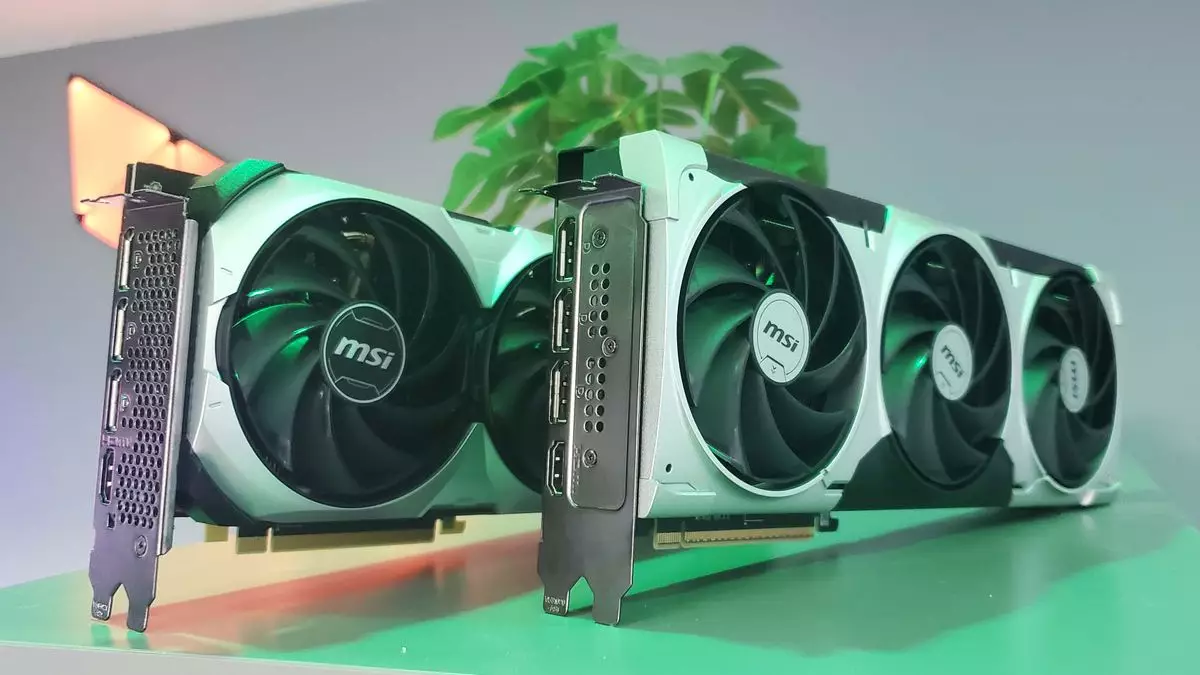The world of PC gaming and high-performance graphics hardware can feel like a dance, with each new product unveil and supply chain hiccup resembling choreographed steps. Just as many enthusiasts are humming along to classic party tracks, they’re equally drawn to the pulsating rhythm of graphics card news, especially with the impending release of Nvidia’s RTX 5070 and RTX 5070 Ti. Yet, amidst the glitz and hype, a familiar system is once again creaking back into action: Newegg’s lottery ticket system, the Newegg Shuffle. This development not only parallels the uncertainty and excitement of the gaming community but also underscores the ongoing challenges of acquiring in-demand technology in today’s market.
After its previous iteration during the pandemic, the Newegg Shuffle has resurfaced as a mechanism for consumers to snag the increasingly elusive Nvidia GeForce RTX 5070 series cards. Much like the nostalgia generated by everyone’s favorite aerobic number, the Shuffle has become a staple for those seeking high-performing graphics cards. However, buyers may be left yearning for the simplicity of “Add to Cart,” as this lottery process introduces a game-like element to procurement.
Importantly, the Shuffle setup requires prospective buyers to sign up for a chance to purchase, offering a sliver of hope rather than a guaranteed acquisition. This is made explicit in Newegg’s FAQ, which highlights how listings for the sought-after products differ from traditional eCommerce models. It becomes clear that while interest is high, immediate gratification is a fantasy—one must enter the Shuffle to even entertain the prospect of getting their hands on the RTX 5070 or RTX 5070 Ti.
The graphic card market is a volatile landscape, with demand consistently outpacing supply. The arrival of the RTX 5070 models on the scene has the potential to accentuate this chasm further. Recent history indicates that the release of Nvidia’s GPUs has been marred by tight supply constraints. This scenario has prompted speculation around whether the staggered introduction of the RTX 5070 and RTX 5070 Ti will alleviate some of the pressurized demand witnessed with earlier releases.
It is worth noting that past models, such as the RTX 5090, encountered a snafu regarding inventory availability. This turbulence has led to user frustration, particularly in a landscape that increasingly leverages online shopping. As such, the lottery format—though helpful in managing the frenzy—remains an imperfect solution that does little to address the root problems of manufacturing and distribution within the tech sphere.
As we inch closer to the release dates—February 20 for the RTX 5070 Ti and March 5 for the RTX 5070—the gaming community is poised on the edge of their seats, fingers crossed and ready for action. Gamers are urged to keep a keen eye on the Newegg listings, with the starting time set for 6 AM Pacific, a detail that hinges upon vigilant anticipation. Those who miss out on the setup may find themselves in a familiar yet disheartening dance reminiscent of missed beats at a party.
In essence, amidst the swirling excitement and anxious anticipation, it’s essential for enthusiasts to come equipped with knowledge. Understanding specifications, features, and comparative performance metrics of the RTX 5070 series could be the difference between having the latest tech or being left in the digital dust.
The Nvidia GeForce RTX 5070 and RTX 5070 Ti are not just new additions to the graphics card lineup; they symbolize the ongoing struggles that consumers face in an environment driven by scarcity and demand. While games and benchmarks will ultimately define these cards’ success, they also underscore the necessity of patience and strategy in today’s market. The Newegg Shuffle may seem like a mere game of chance, but success—like nailing that final Cha Cha turn—lies in preparation, timing, and perhaps, a little luck. Whether or not buyers leave with their coveted hardware, it’s clear that the landscape of PC gaming will continue to evolve, shaped by trends, technological advances, and the ever-present dance of supply and demand.

